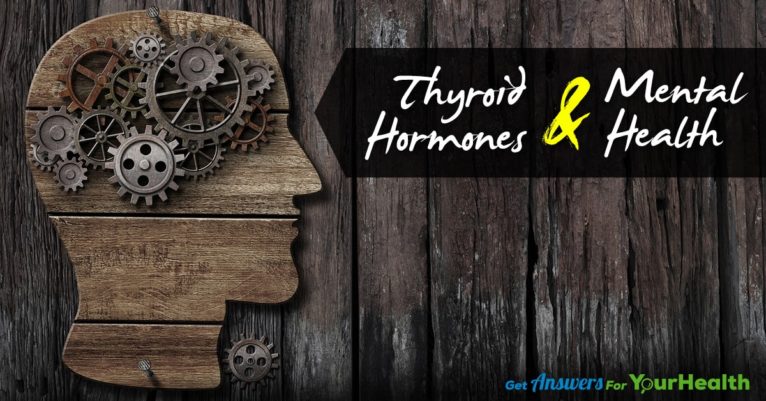1) Grab a FREE copy (Value $14.95) of one of my books Thyroid Symptom Overload
Just pay shipping $7.95 for any US orders. Or, if you want to pay full price plus shipping, order from Amazon :)
2) Take our Thyroid Quiz today and find out what "Thyroid Type" you have
This quiz will help you quickly discover where your symptoms are stemming from.
3) Join Our Thyroid Advocate Membership Site - Natural Thyroid Academy
FREE for a limited time. No credit card required.
4) Work with me and my team privately
Schedule your FREE 15 minute phone consultation and we can find out the best way to help you specifically.
Many people are suffering from thyroid disorders around the world. An average of 13 million Americans is the estimated amount, and most of the cases involve hypothyroidism. It is common in women especially between the ages of 40-60. Thyroid deficiency is associated with emotional and cognitive disturbances. Thyroid gland releases the hormones which modulate and change the basal metabolic rate.
These directions are provided by the hypothalamus to the thyroid gland via the pituitary gland. The thyroid gland releases TSH, T4 and T3 hormones in the blood stream.
Individuals with thyroid disorders can have mental or emotional health symptoms, along with physical signs and symptoms. It primarily occurs in hypothyroidism, hyperthyroidism or thyroid cancer.
In the hypothyroid state, thyroid gland stops responding to TSH. This leads to decreased levels of T4 and T3 while TSH keeps on accumulating.
Hashimoto’s Hypothyroidism:
The leading cause of hypothyroidism includes Hashimoto’s which is an autoimmune condition. It occurs due to prior infection, cancer, or treatment of hypothyroidism with medicines, surgery or radiation. It can also be prevalent if autoimmune conditions run in your family.
During Hashimoto’s thyroiditis, psychiatric symptoms might occur. The common symptoms include depression, mental aberrations, confusion, and irritability. This might result in paranoid schizophrenia, psychotic depression or manic depressive disorder.
Diagnostic markers of clinical hypothyroidism confirmed by the doctors state the increased amounts of TSH and decreased amounts of T3 and T4.
Subclinical hypothyroidism may result in no or few symptoms. It shows increased TSH levels while typical values of T3 and T4.
Symptoms Of Hypothyroidism Include:
The following are the symptoms of hypothyroidism:
- Depression
- Irritability
- Memory loss and mind fog
- Fatigue and weakness
- Digestive issues and weight gain
- Dry hair and skin with hair loss
- Shortness of breath
- Eczema
- Cold intolerance
- Slow pulse
- Muscle cramps
- Goiter
- Difficulty in carrying and conceiving pregnancy
- Reduced libido
- Abnormal menstrual cycle
- Memory and concentration problems
Emotional Problems That Thyroid Patients Can Experience:
The underactive state of thyroid gland can lead to:
- Depression: dripping of tears, feeling depressed, disturbed sleep and appetite loss.
- Over activity that lead to under activity.
- Sleeping difficulties
- Mood swings (short temper)
MENTAL HEALTH PROBLEMS EXPERIENCED IN THYROID PATIENTS:
The cognitive problems or mental health concerns due to hypothyroidism include:
Short term memory, concentration difficulties, as well as lack of mental alertness and interest.
Causes Of Psychological Symptoms:
The hypothyroidism results in psychological symptoms which include:
- Memory problems, mental slowing, and depression.
- During the treatment, the patient might find it difficult to lose weight.
- Rapid changes might occur in thyroid hormone levels.
- Some medicines may also result in side effects which might aggravate depression. For example, steroids and beta blockers.
- Thyroid disorders might also lead to changes in appearance, standard thyroid eye disease, hair loss, weight loss or weight gain. These changes might result in the damage of self-esteem, a very distressful condition.
- Stressful events in your life might also result in thyroid disorder.
Study Findings:
- There is no research evidence, but hypothyroidism symptoms can also occur in patients with psychiatric disorders and depression.
- According to the studies, people with subclinical hypothyroidism are more likely to be depressed. Other studies show the link between clinical hypothyroidism and mood deterioration.
- It is also found in one study that post-traumatic stress disorder can also result in low levels of T4.
- Different studies have different results. The findings conflict about the relationship of thyroid function with mental health problems.
- Thyroid medications can also help for depressed patients, even if they have normal thyroid levels. Please speak to your doctor about this.
How To Treat Hypothyroidism & Depression?
- Hypothyroidism can be easily treated if you consult your medical doctor and treat your thyroid problems. This may ultimately result in the treatment of mental health issues.
- Take help from a medical doctor, specialist, family, friends or people with similar experience.
- The doctors can treat this condition with thyroid drugs. Treatment can include Levothyroxine. This is the standard gold treatment for hypothyroidism. The brand names for levothyroxine include Synthroid, Levothroid, Unithroid or Levoxyl.
- Another drug contains Triiodothyronine, T3, which is available by the brand name Cytomel.
- Your medical doctor can also prescribe you the combination medicine which contains Triiodothyronine and levothyroxine.
- Depression can be treated by talk therapy, antidepressant medications and with an active support system.
Facts About Thyroid Hormones:
- It is stated by the scientists that T3 acts as a neurotransmitter which regulates the functions of Norepinephrine, Serotonin and GABA. This means if you have decreased levels of T3 then you may be more prone to
- Scientists state that thyroid hormonesare a major player involved in brain chemistry.
- Doctors report that Thyroid hormonesare an essential component for the proper functioning of the brain.
- The combination of reduced levels of both the hormones, i.e., cortisol and thyroid results in the severe psychological and psychiatric disorders. The decreased levels of cortisol result in low uptake of the thyroid hormones, ultimately causing the behavioral and emotional symptoms. Examples include hypersensitivity, suicidal ideas, phobias, and delusions.
- The genes such as Deiodinase and Transporter play a significant role in the presentation of mental health problems and the treatment plan of hypothyroidism.
Disorders And Symptoms Associated With Thyroid Problems:
The following diseases and symptoms can be related to thyroid problems:
- Anxiety
- Depression
- Irritability
- Rage
- Insomnia
- Bipolar disorder, mood swings and mania
- Psychosis and paranoid schizophrenia
- Confusion and dementia
- Social anxiety disorder
- Borderline personality disorder
- Generalized anxiety disorder
- Attention-deficit hyperactivity disorder
- Obsessive compulsive disorder
Strategies Of Maintaining Your Thyroid Hormones:
The 13 strategies which help you to the balance and improve the levels of your thyroid hormones are as follows:
- Avoid gluten containing foods (for most people, but get tested for sensitivity)
- Eat enough carbohydrates and calories
- Avoid consumption of vegetable oils
- Incorporate coconut oil in your diet
- Try new therapies, i.e., low-level laser therapy under the supervision of a medical doctor.
- Take enough Vitamin D and A.
- Consume enough minerals.
- Reduce cortisol levels along with stress. (This means having proper adrenal function)
- Take herbal supplements which support the thyroid gland.
- Include a whole food diet full of protein varieties.
- Limit the intake of halogens
- Avoid dietary and environmental mycotoxins (metabolites produced by mold which is toxic)
- Try to remove and avoid environmental toxins.
References:
http://www.btf-thyroid.org/information/leaflets/37-psychological-symptoms-guide
https://www.health.harvard.edu/diseases-and-conditions/thyroid-deficiency-and-mental-health
http://hypothyroidmom.com/when-thyroid-disease-masquerades-as-psychiatric-disorder/
https://stopthethyroidmadness.com/thyroid-depression-mental-health/
http://www.thyroid.ca/e10f.php
https://www.holtorfmed.com/the-link-between-thyroid-dysfunction-and-mental-illness/amp/
http://hypothyroidmom.com/thyroid-mental-health-its-not-all-in-your-head/
https://www.ncbi.nlm.nih.gov/pubmed/20404728
http://www.webmd.com/depression/guide/depression-the-thyroid-and-hormones
https://www.endocrineweb.com/amp/1265








